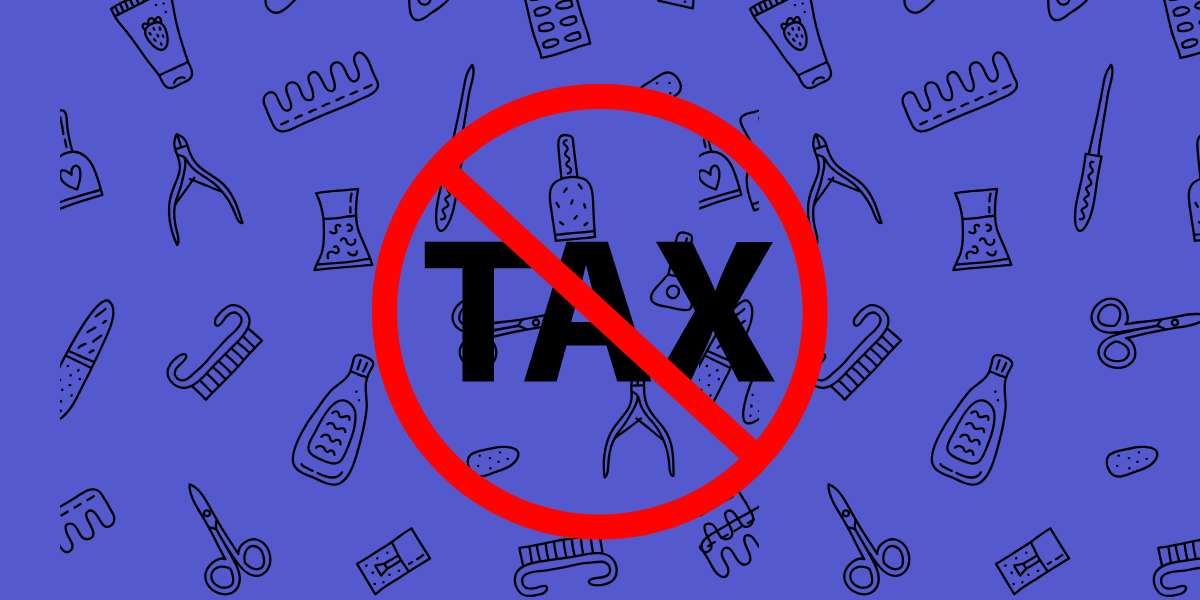In June 2025, the U.S. Senate advanced the “No Tax on Tips” bill, a high-profile proposal aimed at supporting service workers by making up to $25,000 of tip income tax-free. While the intent is to help employees in tipped professions like hairstylists, nail technicians, and massage therapists, the bill fails to offer tax relief to the very businesses that employ them.
The most notable omission? The Senate left out the beauty industry from the Section 45B FICA tip tax credit, a provision that has benefited restaurants and bars for decades. If passed in its current form, the bill would create new tax burdens for salons, spas, and barbershops, without the relief their hospitality counterparts receive.
This decision comes at a critical time: lawmakers are now in their home districts for the Juneteenth recess (June 20–23, 2025), offering a unique window for beauty professionals and salon owners to speak up and push for change before the bill becomes law.
What Is the 45B FICA Tip Tax Credit?
The Section 45B FICA tip tax credit, enacted in 1993, allows employers to recover the 7.65% payroll tax they must pay on employee-reported tip income. While tips are paid by customers, the IRS still requires employers to match Social Security and Medicare taxes on those amounts.
Currently, only food and beverage establishments (like restaurants, bars, and cafés) are eligible for the credit, even though beauty industry businesses also pay FICA taxes on reported tips.
This means that:
- A restaurant owner can deduct the employer share of FICA taxes on tipped wages
- A salon owner cannot, even though both types of employees earn tips and report them to the IRS
You can learn more about the credit from the IRS tip reporting and recordkeeping page.
Why This Matters for the Beauty Industry
Under the Senate’s proposal, employees would be allowed to deduct tip income from their federal tax return. But employers would continue to owe payroll taxes on that income, with no way to recover those costs unless they are in the food service sector.
For beauty businesses, this creates a serious imbalance:
- Increased payroll tax liability on tip income that employees no longer pay income tax on
- No access to the same tax credit restaurant owners have used for over 30 years
- No policy update despite the growing importance of tips in personal care services
The Professional Beauty Association (PBA) estimates that expanding the 45B credit to salons and barbershops would return over $2.2 billion to the industry across 10 years, revenue that could be reinvested in jobs, education, and wages.
For a small salon with five stylists, each reporting $12,000 in annual tips, that’s $4,590 in annual FICA taxes that the business would otherwise recover under 45B.
A Tale of Two Industries: Restaurants vs. Salons
Restaurants and beauty businesses both rely on tipping as a core part of employee compensation. In fact, the U.S. Bureau of Labor Statistics reports that many licensed cosmetologists earn a substantial portion of their income through tips, similar to waitstaff.
Yet, only one of these industries benefits from the 45B credit.
| Industry | Tip Reporting Required | Pays FICA on Tips | Eligible for 45B Credit |
| Restaurants | Yes | Yes | Yes |
| Beauty Services | Yes | Yes | No |
This disparity places beauty businesses at a structural disadvantage. They’re paying the same taxes on the same type of income but receive no tax relief in return.
Why Beauty Businesses Were Excluded
There is no official Senate explanation for the exclusion. However, several key factors are likely at play:
- Historical precedent: When Section 45B was introduced in 1993, it narrowly defined eligible employers as food and beverage service providers. The law was never updated to reflect tipping trends in other sectors.
- Cost concerns: According to Bloomberg Tax, expanding 45B to cover beauty businesses would cost an estimated $2.2 billion over the next decade.
- Political trade-offs: During negotiations, lawmakers may have cut the provision to reduce the bill’s size or avoid delays.
However, the House of Representatives passed a version of the tax bill that includes beauty businesses in the 45B credit, and a standalone Senate bill (S.129) passed unanimously in May 2024 with the same language.
This inconsistency between chambers is why the current moment (June 2025) is so important for industry advocacy.
What Happens If Nothing Changes?
If the final tax bill passes without amending the 45B credit, beauty businesses will face a lose-lose scenario:
- Employees benefit from tax-free tip income
- Employers pay more in payroll taxes with no offset
- Salons and spas remain excluded from a credit that helps competitors in other industries
Over time, this could lead to higher prices, reduced hiring, smaller wage increases, or decreased investment in business growth.
Final Thoughts
The “No Tax on Tips” bill is a step toward recognizing the value of tipped service workers—but without correcting the 45B tax credit disparity, it creates an unfair outcome. Employers in the beauty industry will pay more while others get relief.
This is not about handouts. It’s about equal treatment in the tax code for businesses that operate on the same principles as restaurants, and whose workers rely just as heavily on customer tips.
There is still time to fix this. But action must happen now—while the bill is still being negotiated and Senators are available to listen.
If you believe in fairness for the beauty industry, make your voice heard today. 👉 Take Action Now

